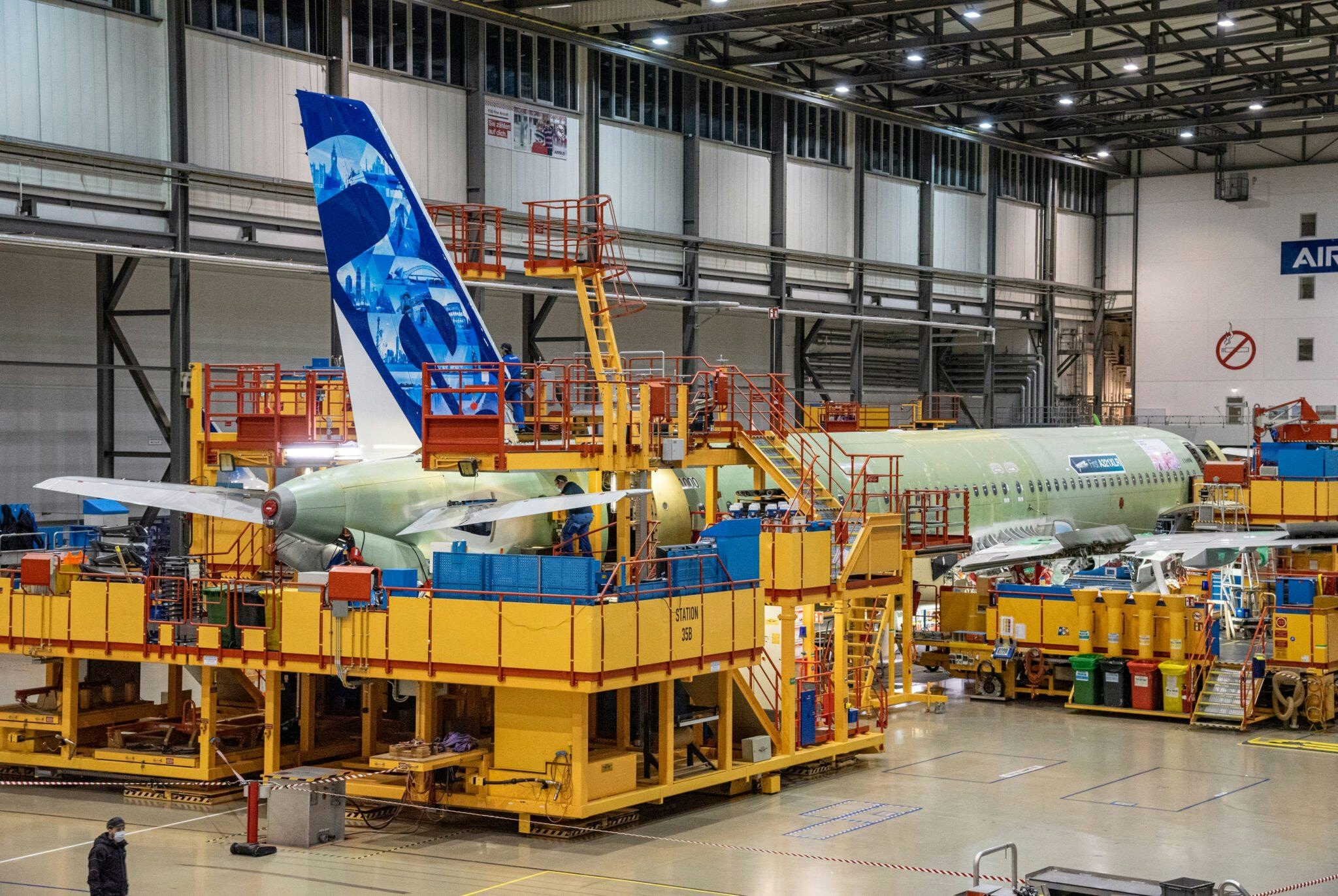AeroGenie — Uw intelligente copiloot.
Trending
Categories
Airbus Reports Engine Delays but Maintains Jet Delivery Targets

Airbus Reports Engine Delays but Maintains Jet Delivery Targets
Rising Engine Shortages Amid Production Challenges
European aerospace giant Airbus has revealed a growing backlog of completed aircraft awaiting engine installation, yet it remains committed to its ambitious delivery target for 2024. The company reported that 60 “gliders”—fully assembled airframes without engines—are currently parked outside its factories, a significant increase from 40 units just a month prior. Despite these mounting delays, Airbus CEO Guillaume Faury assured analysts that engine suppliers have pledged their support to help the manufacturer meet its goal of delivering 820 aircraft this year, representing a 7% increase over 2023. Faury acknowledged the challenges ahead, noting that the delivery schedule would be “more back-loaded than we would like,” but emphasized the company’s determination to adhere to its targets.
The primary source of the engine supply bottleneck remains CFM International, a joint venture between GE Aerospace and Safran, which continues to grapple with production difficulties. Compounding the issue, rival engine supplier Pratt & Whitney, owned by RTX, has recently experienced disruptions following a strike, introducing new delays. While Airbus indicated that most of the engine shortages are still attributable to CFM, both engine manufacturers declined to comment on the situation.
Market Concerns and Financial Performance
The persistent engine shortages have sparked investor concerns regarding Airbus’s ability to sustain its competitive position against Boeing and GE Aerospace. Market reactions have been mixed, with some investors apprehensive about the potential impact on future deliveries and profitability. Boeing, meanwhile, is recovering from its own production setbacks, and GE Aerospace is benefiting from increased demand for aftermarket engine services.
Despite a 5% decline in deliveries during the first half of 2024, Airbus has maintained narrow-body jet production close to pre-pandemic levels to prevent further supply chain disruptions. This accelerated production pace, however, has resulted in a buildup of inventory and increased cash outflows. In the second quarter, Airbus reported cash burn exceeding analyst expectations by €1 billion ($1.14 billion), though it reaffirmed its full-year financial guidance.
Financially, Airbus delivered a stronger-than-expected second-quarter performance. Adjusted operating profit nearly doubled to €1.58 billion, while revenues remained steady at €16.07 billion. These results slightly surpassed analyst forecasts, particularly driven by robust performances in the Defence and Space and Helicopters divisions. Analysts had anticipated adjusted operating income of €1.47 billion on revenues of €15.78 billion, according to a company-compiled consensus.
Strategic Outlook and Industry Developments
Looking forward, Airbus announced plans to increase production of its A330neo wide-body aircraft from four to five units per month by 2029, citing rising market demand. Other production targets will remain unchanged. CEO Guillaume Faury also welcomed a recent agreement between the European Union and the United States to maintain tariff exemptions on aircraft and parts, describing it as “a welcome development for our industry.”
The ongoing engine supply challenges may also affect Airbus’s negotiations with Spirit AeroSystems, a key supplier currently undergoing division between Airbus and Boeing. Airbus anticipates completing the acquisition of certain Spirit assets in the fourth quarter, a strategic move expected to further influence its position within the global aerospace sector.

Emirates Unveils Cabin Design for New Boeing 777X

Eighteen Years On, the Airbus A380 Remains Central to a $34 Billion Airline

How a boom in luxury airline seats is slowing down jet deliveries

Navitaire Outage Attributed to Planned Maintenance

DigiYatra Debuts Outside Aviation at India AI Impact Summit

Vietnam Orders Strengthen Boeing’s Commercial Outlook

Airbus Signals Uncertainty Over Future A400M Orders

JobsOhio Awards $2 Million Grant to Hartzell Propeller for Innovation Center

Collins Aerospace Tests Sidekick Autonomy Software on YFQ-42A for U.S. Air Force CCA Program

How the Airbus A350-1000 Compares to the Boeing 777
